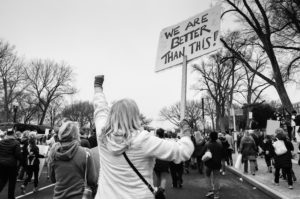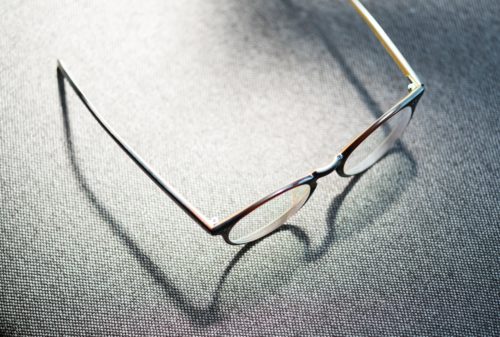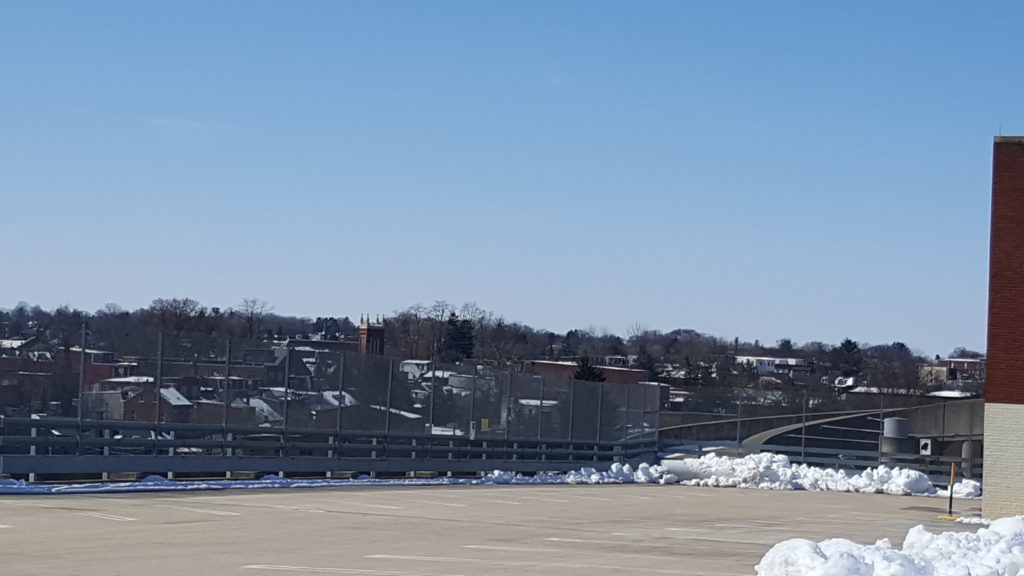The cafe was crowded, matching the city streets outside.
It’s been a while since the kids and I have hung out in the city on a Saturday. If I needed a visual for the word “bustling,” I had it. Everywhere, there were people. Quilters in town for a convention. Men, women and children on their way to a march. Visitors. Residents.
I’m never sure how to classify us. We don’t live in the city, but we’re regulars now, so much so that when someone asks me where the convention center is, I can answer without hesitation, and I know which streets are one way and in which direction. My heart beats in rhythm with the city.
But sometimes I’m still overwhelmed.
Like when we walk into a crowded cafe with no backup plan for an alternative. No tables were open for the three of us, but I spotted three vacant stools at the long hightop. We placed our orders and headed in that direction.
“Is anyone sitting here?” I asked the older couple sitting on the end. “No,” the woman replied, welcoming us. (A side note: I’m a total introvert and often hesitant to engage strangers. But sometimes I surprise even myself.)
“Are you going to the march?” the woman asked me before I’d had a chance to fill our cups with water. The question surprised me a little. It’s not the first thing I would ask a stranger but maybe it was a good one for the kind of day it was in the city.
“No,” I told her. “Not this time.”
—
I’m sitting at home now feeling guilty. We were in the city. We could have gone to the march, but in all honesty, I only remembered on Friday that it was happening. Most Saturday events are inaccessible to us because my husband works and has the van those days. He just happened to be away for the weekend, though, and we did have a vehicle.
But we’d made plans. Library. Lunch. A festival at the Science Factory. I asked the kids the night before if they would want to go to the march and both of them were not overly eager. Now I’m wondering if I’m a bad parent for not taking them. Am I an activist who backs up her words with inaction?
Scrolling through photos and social media posts, shame rolled over me. I should have been there. I should have made us go.
—
Our food arrived at the hightop table where my son had been babbling away about Minecraft and school to these two strangers who listened as patiently as any grandparent would. The woman confessed to me that neither of them could hear very well, which in their case was probably a blessing. My kids say the darnedest things in front of strangers, and I am secretly horrified every.single.time.
We didn’t learn much about them except the man is an artist with an exhibit at a nearby gallery, and they have family in the area. When they left, though, the woman said they had enjoyed the conversation, and I felt only gratitude. So much of what we do as humans these days is solitary or “social” in name only (I’m looking at you social media) that it was refreshing to choose connection in a crowded cafe.
Maybe this is its own kind of lesson.
—
We finished our lunch and walked up the street to market, where we’d usually find my husband. On the way, I noticed the number of people holding signs asking for help. This isn’t something we usually see because we’re often in the city in the early morning or toward the end of the work day. Once we were in the market, we waved to my husband’s coworkers and made a quick bathroom stop. The market, too, was crowded with people of all walks of life.
We left out a different door and circled the building.
“THERE’S NO WAY!”
A man was talking loudly with his group of friends and I heard the phrases “government assistance” and “food stamps” in his tirade. I can only assume he was decrying the people with signs asking for help.
His words hung with me, and I wondered how many times we use that thinking as a reason not to get involved, as a way of staying blind. If we can convince ourselves that a person in need is running a con then we absolve ourselves of responsibility. Right? How many times do I tell myself the story I want to hear so I don’t have to take action?
—
I have been reading a lot about racial injustice lately, and I am convinced that I am blind in more ways than I know. I am a white woman who can hardly see past the end of her privilege and it is wrecking me.
And waking me.
But I still have a long way to go.
I’m discovering that it’s easy to become myopic. I think this is a default mode for most of us. We can see what’s right in front of us pretty clearly, but to see farther away, we need some help. It takes some effort.
Myopia is not all bad. When I was working with refugees weekly, I was full of stories and passionately advocating for immigration policies that would benefit them. When government policies lessened the presence of refugees in our community, I shifted my gaze toward undocumented youth. Now I’m learning about racial injustice. Because I now spend my days with students, some of whom have harder stories than others, my vision has shifted again. I still care about all of these things, but I’m realizing that it takes conscious effort to see them in my daily life. Like putting on a pair of glasses.
I have to want to see.
—
Our first stop of the morning had been to the library where two of us picked up books we’d requested and all of us walked out with at least one book. While we were there, I overheard a woman complaining about not having a library card and needing to use the computer so she could complete some paperwork for a job she’d just gotten.
Later, when I heard the man loudly proclaiming “There’s no way,” I thought about the woman at the library. About the little (and not so little) lines that separate us. Access to Internet seems like it should be ubiquitous by now. (I could insert “secure housing” or “adequate food” or “a living wage” into that sentence, too.) But even in the United States, a country we like to believe is more well-off than other places in the world, these things are not guarantees for everyone.
But you have to want to see it if you’re ever going to believe it.
—
We parked our van on the rooftop level of the parking garage, which made my son’s day. He’s been begging us to park up there for months and when we first arrived, we were the only car on that level. It was creepy in a sort of post-apocalyptic kind of way. For a moment, we felt like the only people on earth.
When we left, a few other cars had joined us on the top level. The sound system for the post-march rally was being tested in the park next to the garage. Sounds of life were all around us. We knew we were not alone in the world.
I steered the car carefully on the ramp as we descended back to street level.
And this I think is the point of all of this: a vantage point offers us a spectacular view and maybe even a moment of peace, but to see the world true, we more often than not have to be on the same level as the people and circumstances we’re trying to understand.
For many of us, that means a descent to street level or the wearing of glasses to give us better vision.
I still have so much work to do.


